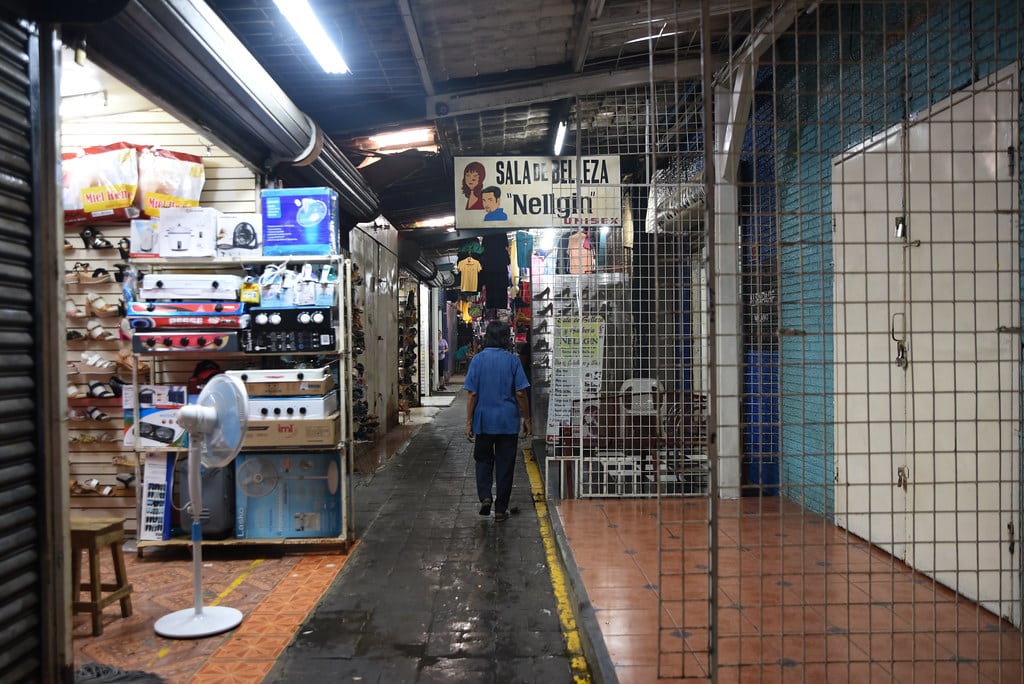The 2.1% economic growth forecast for Nicaragua in 2023 due to the Economic Commission for Latin America and the Caribbean (Cepal) It will be insufficient to lower poverty rates, in a context in which the regime is closed off from international financing sources and, if the economy grows, it does so to a large extent due to external factors that can change without the possibility of incidence. .
After the ‘rebound effect’ generated growth of 10.3% in 2021, it is estimated that the gross domestic product (GDP) will rise by 3.8% in 2022, and slow down more from 2023, growing 2.1%according to ECLAC. The president of the Central Bank of Nicaragua (BCN), Ovidio Reyes, asserts that the economy will grow between 3.5% and 4.5% this year, and between 3.0% and 4.0% in 2023.
One of those external factors is the performance of the US economy, which has begun to show improvement in recent weeks: GDP the third quarter grew 2.6%, and the Federal Reserve of Atlanta forecasts that the fourth quarter will grow 4.0% with very low unemployment, which augurs that the flow of remittances sent to Nicaragua will continue, said the Nicaraguan economist July SevilleProfessor of Business at the University of Georgia.
The Nicaraguan economist and former representative Eliseo Núñez mentions that the rise in the prices of export products boosts the Nicaraguan economy, without forgetting that the cost of imports also grows, and how, the country’s net indebtedness capacity, which is about 400 million dollars a year, will have an impact on growth, with which “the country will be in a valley, not on a plateau”for the next four to five years, he detailed.
“The Economist Intelligence Unit has a projection of close to 2.0%. The same goes for the World Bank and Cepal, while the International Monetary Fund (IMF), Standard and Poor’s, and the Government have it at 3.0%”, he told CONFIDENTIAL an economist who requested anonymity.
His criteria is that both scenarios are feasible, but that the probabilities are on the side of the higher scenario, due to the growth of remittances and exports, considering that tourism and foreign investment point in the same direction. Conversely, he sees construction and private investment as the biggest unknowns, along with what may happen to the US economy, and the sanctions that Washington may impose.
“Those are the risks that could lead to the trajectory trending more downward, so the prospects depend on how each of these elements moves,” he said, without ignoring that either of the two scenarios (the 2.0% and that of 3.0%) is insufficient, because “we would have to grow at rates of 7.0% per year to double GDP per capita in ten years.”
Employment. Inflation. Poverty
The lack of employment, high inflation and excruciating poverty will continue to be present in the country, affecting the poorest in the first place, both due to the structural challenges faced by the Nicaraguan economy, and due to the consequences of the political decisions it makes. the dictatorial couple
“The capacity to generate employment in our economy is very limited and must be analyzed sector by sector and taking into account investment flows and GDP growth,” he told CONFIDENTIAL the manager of a company that provides support to the national productive sector.
The professional identifies as “proof that there is a lack of strength and growth”, the fact that the banks’ credit portfolio has not managed to return to the levels of 2017, when it reached 5,377 million dollars. As of October 2022, the credit portfolio stands at 3,902 million, he said, citing data from the BCN.
On the other hand, he acknowledges that ‘nearshoring’ (the relocation of companies) has generated more work and more activity in the free zones, “which helps, but that has not prevented the strong migratory flow abroad.”
One of the reasons for this to be the case is that “the economy has problems generating jobs due to the high social burden and the high tax ratewhich has led companies to cut labor costs”, explains the economist.
Regarding inflation, he points out that there is a global downward trend that could benefit Nicaragua, “but poverty will continue to be a problem, due to the difficulty in generating formal jobs, especially due to the fact that inflation will remain higher than usual, which tends to deteriorate wages”.
One of the most important options for generating jobs –not always formal– is agriculture, work that “is not growing much; rather it is being maintained. The areas of the main crops for export and domestic consumption have not undergone major changes in recent years”, explains the manager.
With the increase in migration, agriculture will have to bet on mechanization and become more efficient to solve the problem of the lack of labor, and seek how to increase the productivity of those who do field work, he explains.
The agricultural sector, which still requires inputs whose costs have dropped but not to pre-pandemic levels, will see lower prices for coffee, and for other export crops that will drop, but not as much: cocoa, palm oil, bananas, meat, and sugar. cane.
In addition to anticipating that next winter will be a good winter, a drop in fuel prices is also expected, in line with lower oil prices; that the planting areas of coffee, palm, cane and peanuts are maintained, as well as a slight growth in rice and beans, in the midst of the tension due to the lack of labor, which already affects coffee and tobacco.
Extortion of companies is “food for today, hunger for tomorrow”
The business racket – whose strengthening would be key to increasing employment and improving the country’s competitiveness – is also unable to carry out this task, both because of the hemorrhage of qualified human resources that massive migration means, and because of the extortion campaign that suffers from the regime, without forgetting the deepening of the tax reform of 2019.
This reform is one of the main barriers to private investment and economic growth, says the manager, stating that there are many companies that are implementing survival strategies designed to be efficient and remain operational with zero or minimal investment, which reflects the climate of uncertainty suffered by private and foreign investors.
For former deputy Núñez, the coordinated attacks by the General Directorate of Revenues (DGI), the Customs Services Directorate (DGA), and the mayoralties, (with Managua at the forefront), deepen the crisis of confidence that businessmen are experiencing, because they don’t know if The tax collection voracity of the regime will put your company on the verge of bankruptcyor if they will be arrested and criminally charged for any debt – real or not – that a municipality collects from them.
Núñez pointed out the error that the policy of denying fiscal solvency to the partner of a company that has tax problems entails, and how that points, for example, against the development of a stock market, because if someone buys a share of a company, and then it has tax problems, that shareholder may be affected by that policy.
“That is a policy of ‘food today, hunger tomorrow‘, because they obtain resources immediately, but they destroy the trust of the businessmen,” he said, asserting that this is one more example that Daniel Ortega “only has a day-to-day strategy, both politically and economically.”
“The net loss generated by migration is brutal for the country”, because we lose qualified personnel and specialists who go to work as technicians, (even if they have a professional title), because that way they will earn more, with the result that companies no longer find qualified personnel, which will make it more difficult for them to expand, he said.
Expanding the panorama, he observes companies with little incentive or ability to invest, lack of confidence and personnel, less ability to promote their collaborators, because many of them are already out of the country. “They will reduce operations in Nicaragua, or hire people to work online from abroad. In one way or another, this implies loss of jobs, because each middle-class person who leaves the country lays off domestic staff, the driver, the gardener, and many of them never find work again, he said.
Are you still fighting with the United States?
Although in Daniel Ortega’s eighties speech, the United States is the origin of all evils, in reality that country is the first commercial partner, the main source of foreign investment, remittances, access to technology, entertainment and knowledge for Nicaragua.
“In this globalized world, in which the growth of our economy is linked to that of our partners, Nicaragua depends heavily on our main trading partner, which is the United States., where three large streams of income come from: remittances (until October, 79.5% came from that country); direct foreign investment (almost 36% in the first half of 2022), and is the main buyer (45%), of our exports”, explained the manager.
That is why a bad relationship with that country, (but also the internal police state, corruption, the feeling of legal insecurity that exists in Nicaragua), undermines the possibility that the regime can continue to have access to resources in the multilateral organizations in which the United States has voting power… or influences.
On the other hand, Professor Sevilla currently celebrates the proximity of the US economy to the Nicaraguan economy, because the outlook has improved for the former, to the point that it is considered that there is less probability of recession.
He explains that four million jobs are generated annually in that country, and some 3.7 million are destroyed, and that in the current situation “there is a lot of demand for the type of jobs that Nicaraguans do,” which has led employers to pay more to attract that workforce, and that strengthens the sending of remittances.
“Construction has stopped a bit, because the cost of mortgages has risen a lot, and that can affect the Nicaraguans, although there is always the possibility of finding a job in restaurants, logistics, distribution of products, etc.”, and that It favors that remittances become more secure, and the high prices of our exports remain stable, explained the academic.
The policy of promoting migration to capture more remittances (the accumulated amount up to December is equivalent to 84% of the 2022 income budget) is a mistake, since “depending on remittances is a recipe for failure.” “Economies based on service and consumption are usually very small, and they work until the economy needs to diversify” and increase its scale of production and use of technology, Núñez explained.
















